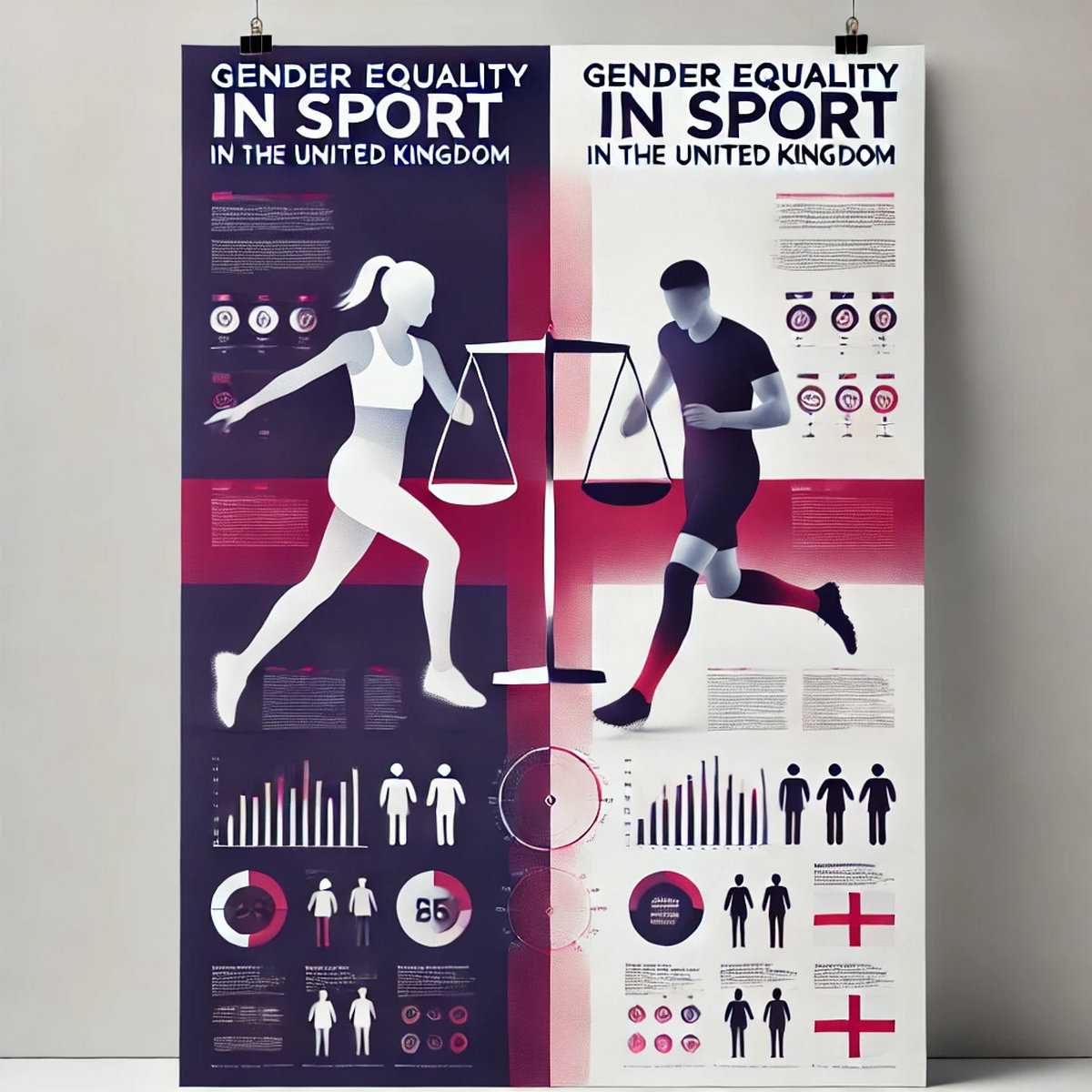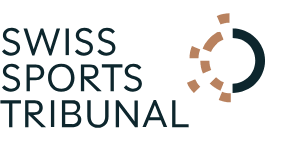QUARTERLY INTERNATIONAL SPORTS LAW NEWSLETTER – APRIL 2025
Welcome and Aims
We welcome readers to the third issue of our International Sports Law Newsletter, which appears quarterly, and aims to update you on developments and activities in our international sports law practice.
Please subscribe to our Newsletter by clicking here, completing and submitting the Newsletter Subscription Form.
Developments at the Firm
We are pleased to report the following new developments at our Law Firm:
Oliver Fischer

We are delighted to welcome Oliver Fischer as a member of our team.
Oliver is a very experienced and well-known German sports lawyer with particular expertise in association football, tennis and handball.
He will head our German Desk.
Dr Lucien Valloni, Founder and Managing Partner, stated:
“His experience will add value to the Firm, and, as Head of our German Desk, he will be a great asset for our clients requiring German legal advice, professional assistance and representation.”
Country Desks
We have set up some Country Desks to provide unique and seamless cross-border professional advice and legal representation in contentious and non-contentious sports matters in France, Germany, Italy and the United Kingdom.
They are headed by Estelle Ivanova, Oliver Fischer, Sara Botti and Ian Blackshaw respectively.
For more information, contact our Managing Partner, Lucien Valloni, by email at ‘valloni@valloni.ch’.
Sports Regulation in France
The Head of our French Desk, Estelle Ivanova, published an article on this subject in the March 2025 issue of ‘Sports Law and Taxation’ (www.sportslawandtaxation.com), which is widely read internationally.
Football Transfers in Germany

In the January 2025 football transfer window, almost £1.9 billion (around Sw. Frs. 2.17 billion) was spent globally by clubs on players, which is an all-time high for this window.
Clubs in England accounted for more than 25% spent in the men’s game amounting to £498 million (around Sw. Frs.569 million), with German clubs in second place, spending £237 million (around Sw. Frs. 271 million).
Whilst every transfer is different, in general, each transfer involves the following steps and agreements:
- Contract negotiations between the player, the potential new club and the current club.
- Old and new clubs sign a transfer agreement.
- Old club and player sign an agreement terminating the employment.
- New club and player sign an employment agreement.
- Licence Agreement between the player and the German Football League (“DFL Deutsche Fußball Liga e.V. – DFL”).
The completion of the transfer is subject to the required documents, which include the new employment agreement, and the sports fitness certificate issued after the medical examination of the player, being submitted to the DFL by not later than 6:00 p.m. on the last day of the transfer period (§ 4 No. 2 DFL Licensing Regulations for Players („DFL Lizenzordnung Spieler – LOS“)).
Where the player is out of contract (a free agent) or the usual fixed-term employment agreement expires within the next six months (§ 5 no. 1 sub-section 6 LOS), the player and the new club can conclude an employment agreement without the consent of the old club. In that case, a transfer agreement is not required.
If, however, the player is still under contract with his current club for more than six months, the new club, or the player’s agent, must first inform the current club and obtain its consent to approach the player and conduct contract negotiations with the player. So-called ‘tapping up’ – that is, approaching the player without informing and obtaining the consent of the player’s current club – is not allowed. Failure to notify and obtain such consent may result in fines, transfer bans and other sporting sanctions. Subsequently, the player and the potential new club enter into negotiations on and conclude the terms and conditions of the future employment agreement.
Where a transfer agreement between the old and the new clubs is required, this agreement requires the old club to cooperate with the new club in terminating the current employment agreement with the player – usually by concluding a termination agreement – and, in return, requires the new club to pay the agreed transfer fee.
The transfer agreement also lays down the payment terms in respect of the transfer fee. This usually consists of a base transfer fee and additional payments linked to the player’s future individual performance and/or the success of the new club. There may also be a so-called ‘signing-on’ fee payable.
If the current agreement of the player contains a so-called ‘exit clause’, the value of the player to be transferred has already been agreed and consent follows on the new club agreeing to pay that amount. It may be added that such ‘exit clauses’ should be carefully drafted to avoid any misunderstandings or disagreements between the parties.
It is advisable for the new employment agreement to be subject to a condition precedent, whereby the agreement only becomes legally effective when the DFL licence is granted (§ 2 LOS).
Furthermore, where the player is not a national of an EU member state or an EEA state, a residence and work permit will be required, and, again, the employment agreement should also be subject to the corresponding condition precedent.
For further information, advice and legal representation, email Oliver Fischer, who is an expert on football transfers in Germany, at ‘fischer@valloni.ch’.
Financial Regulation of Football Clubs in France

Although association football is the world’s most lucrative sport, it is not without its financial challenges and pressures.
The finances of professional football clubs in France are regulated by the Direction Nationale de Contrôle de Gestion (National Directorate of Management Control) (DNCG).
The purpose of the DNCG is to ensure that clubs are solvent and do not exceed their financial capacities.
The DNCG regulates clubs as follows:
- The DNCG conducts annual audits of clubs, reviewing their budgets, staffing, financial terms, and sponsorships.
- Based on these audits, the DNCG decides whether to admit a club to the French League for the following season.
- The DNCG may impose conditions on clubs, such as limits on players’ contracts, salary caps, or budgetary restrictions.
- The DNCG publishes an Annual Report of its findings and the club’s accounts.
The French Football Federation (FFF) established the DNCG, in 1990, to control the solvency of French professional clubs and protect the integrity of the League.
Certain football clubs are required to operate as commercial companies, pursuant to Articles L.122-1 and R.122-1 of the French Sports Code. According to these provisions, a sports association affiliated with a federation must be incorporated as a commercial company if its annual revenue exceeds €1,200,000 (around Sw. Frs. 1.13 million) or if the total salaries of its professional athletes exceed €800,000 (around Sw. Frs. 753,500). When required to incorporate, clubs can choose from various legal forms, including the Société Anonyme à Objet Sportif (SAOS); Société Anonyme Sportive Professionnelle (SASP); Société par Actions Simplifiées (SAS); Société à Responsabilité Limitée (SARL); Société Coopérative d’Intérêt Collectif (SCIC); or other corporate entities permitted under French law. This regulatory framework aims to ensure financial transparency whilst providing flexibility in the legal structuring of professional football clubs.
French football clubs are also subject to the UEFA Financial Fair Play Rules.
Whilst the DNCG focuses on solvency, the UEFA Rules focus on profitability.
This, of course, can lead to disparities between domestic clubs and clubs in other European Football Leagues.
Furthermore, Article L.132-2 of the French Sports Code reinforces financial oversight by requiring federations that have established a professional league to create an independent regulatory body. This entity is tasked with overseeing the administrative, legal, and financial operations of sports associations and companies affiliated with the federation or seeking membership. It is also responsible for controlling the financial activities of sports agents and monitoring changes in club ownership, including acquisitions and transfers of shares.
Notably, the FFF was the first football governing body to put in place, in 1990, a financial regulation system of football clubs, whereas the UEFA financial regulation system of football clubs was established in 2010.
Both financial regulation systems in France are complex and technical, and for further information about our professional services relating to them, email Dr Estelle Ivanova, the Head of our French Desk, at ‘ivanova@valloni.ch’.
CAS Award in ACB 1904 SA v. The Swiss Football League

The recent award by the Court of Arbitration for Sport (CAS) in the dispute between AC Bellinzona 1904 SA and the Swiss Football League (SFL) (2024/A/10916) offers an interesting opportunity to reflect on the rigid application of rules regarding „locally trained“ football players and the legal implications of their interpretation and application.
The CAS award, issued on 28 February 2025, confirms the automatic nature of sanctions for violating the maximum limit of „non-locally trained“ football players, highlighting the importance of legal certainty in sports justice.
The Regulatory Context and the Facts of the Case
Articles 168 and 170 of the Regulations of the Swiss Football Association (ASF) stipulate that, in official competitions, Challenge League teams may register a maximum of seven „non-locally trained“ players on the official match sheet.
In the present case, the Swiss Football League found that AC Bellinzona 1904 (Bellinzona), which plays in the Swiss Challenge League, had violated these Regulations during the match, played on 20 July 2024, against FC Wil 1900, having registered eight „non-locally trained“ players on the match sheet.
Bellinzona challenged the decision, arguing that:
- two of the contested players should be considered „locally trained“;
- the registration of one player was a material error, as the player was no longer available to the team;
- the absence of an Italian version of the ASF Regulations created interpretative ambiguities, violating the principle of proportionality.
However, on 16 September 2024, the SFL Appeals Tribunal fully upheld the disciplinary decision, highlighting the lack of discretion in the application of the sanction.
The CAS Appeal Proceedings
On 4 September 2024, Bellinzona appealed to the CAS, seeking the annulment of the Appeals Tribunal’s decision and the granting of suspensive effect. However, the CAS rejected the precautionary request, finding that there was no irreparable harm, if not granted
Following a hearing, held on 17 February 2025, the CAS, with an award issued on 28 February 2025, dismissed the appeal and fully upheld the SFL decision.
The CAS Reasoning
The CAS based its decision on several key points:
- The Interpretation of the Rule on „Locally Trained“ Players
Article 168 of the ASF Regulations defines a „locally trained“ player as one who has spent three full seasons or 36 months at a club affiliated with the ASF between the ages of fifteen and twenty-one. Bellinzona contested the application of this requirement, arguing that the age clause referred only to the 36 months and not to the three full seasons. However, the CAS rejected this interpretation, stating that the purpose of the rule is to encourage the development of young Swiss football players. - The regulatory text, both in the German and French versions, clearly extends the age limit to both conditions provided.
Consequently, the players included did not meet the requirements to be considered „locally trained,“ effectively bringing the number of „non-locally trained“ players on the match sheet to eight. - The Error in Player Registration
Bellinzona argued that a player had been mistakenly included on the match sheet and that, having already signed a transfer agreement with a Mexican club, he was no longer available to the team. However, the CAS reiterated that, according to Article 15 of the SFL Player Qualification Regulations, a player remains formally registered until the transfer is officially recorded in the federative transfer system. Since the transfer was registered only ten days after the match, he was still eligible to be fielded and thus countable for the rule on „locally trained“ players.
Moreover, the ASF Disciplinary Regulations stipulate that regulatory violations are punishable whether committed intentionally or negligently. Therefore, the material error in player registration does not exempt the club from responsibility. - The Automatic Nature of the Sanction
Article 176 of the ASF Regulations expressly provides that violation of the rule on „locally trained“ players automatically results in a forfeit loss (0-3) and a monetary penalty. The CAS, therefore, excluded any discretion in the application of the penalty.
Conclusions
The CAS Award in the Bellinzona case highlights several crucial aspects of sports justice:
- The importance of legal certainty, with clear and rigidly applied rules.
- The absence of any discretionary margin in applying certain sports sanctions.
- The rigidity of the principle of strict liability, which imposes a high level of attention on sports clubs in the administrative management of registered players.
Whilst understanding the interpretative difficulties raised by Bellinzona, the CAS correctly reiterated that sports federations enjoy broad autonomy in regulating competitions and that the rules, once accepted by affiliated clubs, must be respected.
This ruling, therefore, fits into a jurisprudential trend that favours the rigorous application of sports’ regulatory norms, with the aim of ensuring uniformity, predictability, and sporting integrity.
We represent parties involved in CAS ordinary, appeal and ad-hoc proceedings, and further information may be obtained by e-mailing either Avv. Sara Botti, the Head of our Italian Desk, or Dr Lucien Valloni, at ‘botti@valloni.ch’ and ‘valloni@valloni.ch’ respectively.
Gender Equality in Sport in the United Kingdom

There is a continuing need, throughout the world, to bridge the gender gap between men and women in the sporting arena and the same is true in the United Kingdom.
We report the findings to date of the UK Women in Sport Charity (www.womeninsport.org), whose aim is to create a lasting and positive change for women and girls in sport, as follows:
Women and girls deserve equal opportunity to enjoy the benefits of sport, which is why our charity it determined to tackle sexism in sport at every level. This includes challenging explicit cases of discrimination and harassment as well as addressing the underlying barriers to equality.
- Gender stereotyping is alive and kicking. Girls as young as 5 years old feel they don’t belong in sport. Only 30% of parents believe playing sport is very important for their daughter, compared with 41% of parents for their sons.
- There is a mental health crisis in teenage girls. Anxiety is spiralling upwards, along with self-harm and eating disorders. By the time they reach puberty, 1.3 million girls who once loved sport are disengaging.
- Women in midlife are suffering from the cumulative impact of decades of limiting gender stereotyping. A third of women aged 41-60 are not meeting the Chief Medical Officer’s guidelines of 150 minutes of physical activity per week. 84% of inactive women at this life stage want to be more active.
- Women in wiser life are twice as likely as men to suffer a fracture after a fall. By the age of 80 years old, half of women will suffer with osteoporosis.
(NICE)
We also see significant gender gaps when we look at the number of women participating in sport. In fact, the gender gap is bigger than it has ever been since reporting began. In team sport, 7% more men than women play, and there is a shocking 22% gap between girls and boys.
We also see clear gender gaps when we look at the number of women working in sport at every level. Women are a minority in coaching, especially at an elite level. A recent count of leaders in the top 20 sports by participation in England showed that across the roles of CEO, Chair and Performance Director, only 24% were women.
We work to ensure equality of opportunity by focussing on getting more women and girls participating in sport; more women working in sport at every level; and by driving commercial investment in and media coverage of women’s sport.
We also work to ensure that women and girls, who do engage with sport, receive equal respect with their male counterparts.
UK Sport is another body that is also committed to achieving gender equality in sport by taking a proactive approach and published on 24 June 2021 the UK Sport Diversity and Inclusion Action Plan 2021-2026, a copy of which is available at the UK Sport Website at: ‘www.uksport.gov.uk’.
As elsewhere in Europe and noted on our website, gender equality in the United Kingdom is a work in progress!
For further information about our professional services in this important field of gender equality in sport in the UK, please email the Head of our UK Desk, Prof Dr Ian Blackshaw, at ‘blackshaw@valloni.ch’.
The Swiss Sports Tribunal suspends floorball player

On 21 March 2025 the Swiss Sports Tribunal (TSS) suspended for one year a Swiss floorball player for possession of the prohibited substance RAD140 (SARM).
The offence came to light during a postal inspection, in which a package containing 180 capsules of RAD140 (SARM) addressed to a Swiss floorball player was seized by the Federal Office of Customs and Border Protection (FODF) and forwarded to Swiss Sport Integrity.
In accordance with the provisions of the Sports Promotion Act (SPA), Swiss Sport Integrity ordered the destruction of this product for a fee as part of an administrative legal procedure.
The floorball player was subsequently informed that possession and attempted use of the prohibited substance RAD140 constitutes a potential violation of the Swiss Olympic Doping Statute.
In the proceedings before the TSS, the amateur player admitted ordering the prohibited substance, but credibly proved that he acted without serious negligence when placing the order.
The TSS imposed a one-year suspension on him for possession of a doping substance and ordered him to pay 500 francs in costs.
Swiss Sport Integrity has reminded all sports players that the importation of doping substances is prohibited and can lead to suspensions, even of amateur players!
For more information about our professional services in relation to the Swiss Sports Tribunal, please email Noemi Delli Colli or Lucien Valloni at ‘dellicolli@valloni.ch’ and ‘valloni@valloni.ch’ respectively.
New IOC President
The International Olympic Committee (IOC) has broken with tradition and elected, for the very first time and in the first round of voting, a woman as its new President.
Kirsty Coventry is the Zimbabwe Sports Minister, and, at 41 years old, the youngest ever to hold this prestigious position in the 130-year history of the IOC. She is also the first IOC President from Africa.
She holds two Olympic gold medals for swimming, and campaigned to protect female sport, supporting a total ban on transgender women competing in female Olympic sports.
She also pledged to promote sustainability, embrace technology and empower athletes.
She described her election as an “extraordinary moment” and promised to make the IOC members proud of their choice!
We congratulate her and wish her well in her challenging new position as the most powerful woman in world sport!
Careers with Valloni Attorneys at Law
We are always looking to recruit further well-qualified and motivated members of our Team, who, in line with the ethos of our Law Firm, are focussed on results, and we should be very pleased to hear from such candidates, who should email their CVs to our Managing Partner, Dr Lucien Valloni, at ‘valloni@valloni.ch’.
Further Information and Advice
For further details of any of the sports law issues covered in this Newsletter, please refer to the NEWS section of our website.
Also, for any professional advice and assistance on any of these issues, or, indeed, on any other matters, especially sports-related disputes of a sporting or a commercial/financial nature, which are a particular specialism of our Law Firm, please email our Founder and Managing Partner, Dr Lucien Valloni, at ‘valloni@valloni.ch’.
© VALLONI Attorneys at Law 2025 and All rights reserved.
